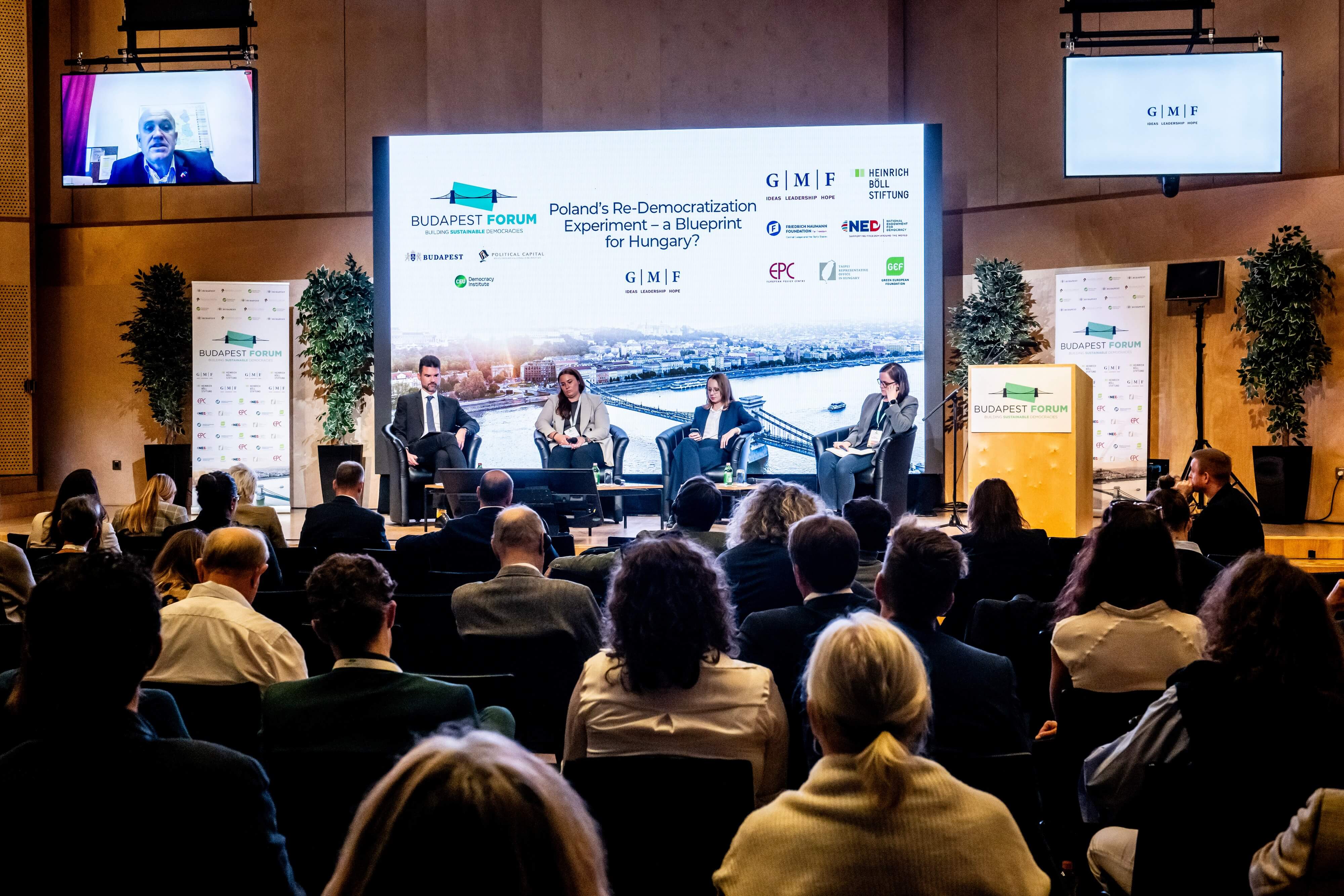Poland's Re-Democratization Experiment – a Blueprint for Hungary?
2024-09-26
Speakers:
- Anna Wójcik - Assistant Professor, Institute of Legal Studies, Polish Academy of Sciences; Co-founder and Editor, The Wiktor Osiatyński Archive and ruleoflaw.pl
- Barbara Grabowska-Moroz - Senior Research Fellow and Director of Rule of Law Clinic, CEU Democracy Institute
- Dariusz Mazur - Deputy Minister of Justice in Poland
- Genevieva Shea - Resident Program Director for Central and Eastern Europe, NDI

Main takeaways
- Since the last parliamentary elections in 2023, Poland has been re-democratizing, and they have begun restoring institutions that were taken over by the previous regime and re-adopting democratic values. This change could serve as a guide for Eastern European countries, particularly for Hungary.
- In the year since the election, the re-democratization of legal institutions has begun, but during the previous eight years, these institutions adapted to the system, which complicates the process. Additionally, President Andrzej Duda is trying to hinder the process.
- A crucial question regarding the restoration of the Polish legal system is how to do it correctly: they must be careful not to do this too quickly and not legally enough, or too slowly and not effectively enough.
- In the Polish legal system not only the hard aspects but also the soft aspects have changed. And they also have to decide what to do with them. One thing is certain: some form of democratic training is necessary. And an essential question is that the previous eight years are considered illegitimate, how should the judgments made during that period be handled?
- The pre-2023 regime also took over Polish public media and attempted to reshape the entire media landscape. The new head of Poland's National Media Council is deeply embedded in the PiS (Law and Justice Party), and he will remain in office for six more years, although attempts will be made to remove him from his position in parliament. For the time being, his presence is a major obstacle to media reforms.
- Nevertheless, after the elections, the leadership of Polish public television was replaced, and several TV personalities and propagandists who operated under the PiS government have already left public media. The question remains: now that their state funding in its previous form has ceased, where will these individuals and the media outlets close to PiS, which previously operated with state money, get their funding?
- Polish society has become highly polarized, and the particularly ugly campaign of 2023 did not help this situation. However, the Tusk campaign managed to reach out to women under 45, a group that is traditionally rather inactive politically, which was important for their victory.
- Democratic education at all levels of society is important so that people understand what democracy is and how to live in and with it. For example, they want to train judges in European law to make them more resistant to a potential reform similar to the previous one. But all of this requires a lot of time..
Policy recommendations
- In recent times, several grassroots media outlets have emerged in Poland. This type of media organization could be crucial in replacing similar systems and strengthening democracy.
- During the 2023 elections in Poland, the opposition successfully engaged traditionally inactive voter groups. A similar approach would be needed from the opposition in Hungary as well.
- Some kind of cooperation between the former Tusk campaign and the future Hungarian opposition campaign could be useful.
Copyright 2026. Political Capital Policy Research and Consulting Institute, all rights reserved.

